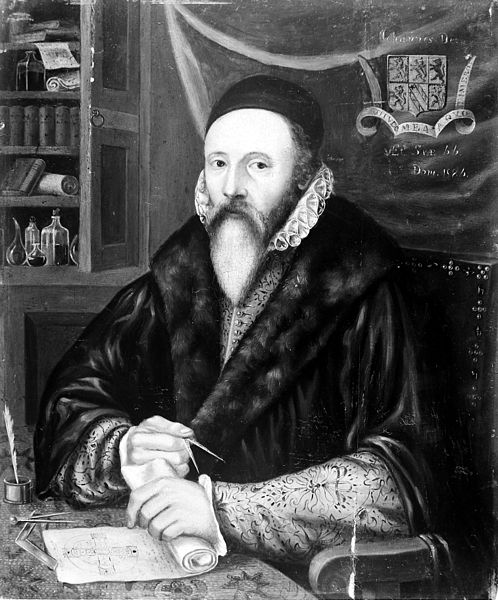White-bearded wizards, flowing robe and staff in hand, have found their way into our fantasy lives with such literary and popular culture characters as Gandalf, Obi- Wan Kenobi, and Albus Dumbledore. But as endearing as they may be, these magicians are purely manifestations of the outstanding imaginations of their respective creators. There is, however, one celebrated literary conjuror for whom scholarship has long held out a traditional allowance as being based upon a real-life magical analogue. Shakespeare’s Prospero, the protagonist of the Bard’s last play The Tempest, may have been modeled upon 16th century mathematician, political advisor, astrologer, and occultist John Dee.
In the summer 1959 edition of the PRS Journal, Manly P. Hall tells us, “It has been claimed, probably with some justification, that the majestic figure of Prospero in ‘The Tempest’ was modeled, at least in part, from the personality of John Dee.”
This sentiment has been echoed by a host of scholars and writers, including Jason Louv, Lynn Picknett, Clive Prince, Philip Carr-Gomm, and Richard Heygate. The online Encyclopedia Britannica makes this bold assertion: “It is almost certain that William Shakespeare (1564–1616) modeled the character of Prospero in The Tempest (1611) on the career of John Dee, the Elizabethan magus.”
...
Subscribe to the New PRS Journal to read on...
In the summer 1959 edition of the PRS Journal, Manly P. Hall tells us, “It has been claimed, probably with some justification, that the majestic figure of Prospero in ‘The Tempest’ was modeled, at least in part, from the personality of John Dee.”
This sentiment has been echoed by a host of scholars and writers, including Jason Louv, Lynn Picknett, Clive Prince, Philip Carr-Gomm, and Richard Heygate. The online Encyclopedia Britannica makes this bold assertion: “It is almost certain that William Shakespeare (1564–1616) modeled the character of Prospero in The Tempest (1611) on the career of John Dee, the Elizabethan magus.”
...
Subscribe to the New PRS Journal to read on...
Nothing comes from nothing. Manly Hall’s vision for the All-Seeing Eye was entirely supported by contributions from its readers who paid for their subscription with gifts made according to their means. Manly Hall wrote,
“This magazine is published and distributed privately to those who make possible with their financial support its publication. The magazine cannot be bought and has no fixed value. Like all of the ancient teachings which it seeks to promulgate, it has no comparative value, but the students must support it for its own intrinsic merit.”



